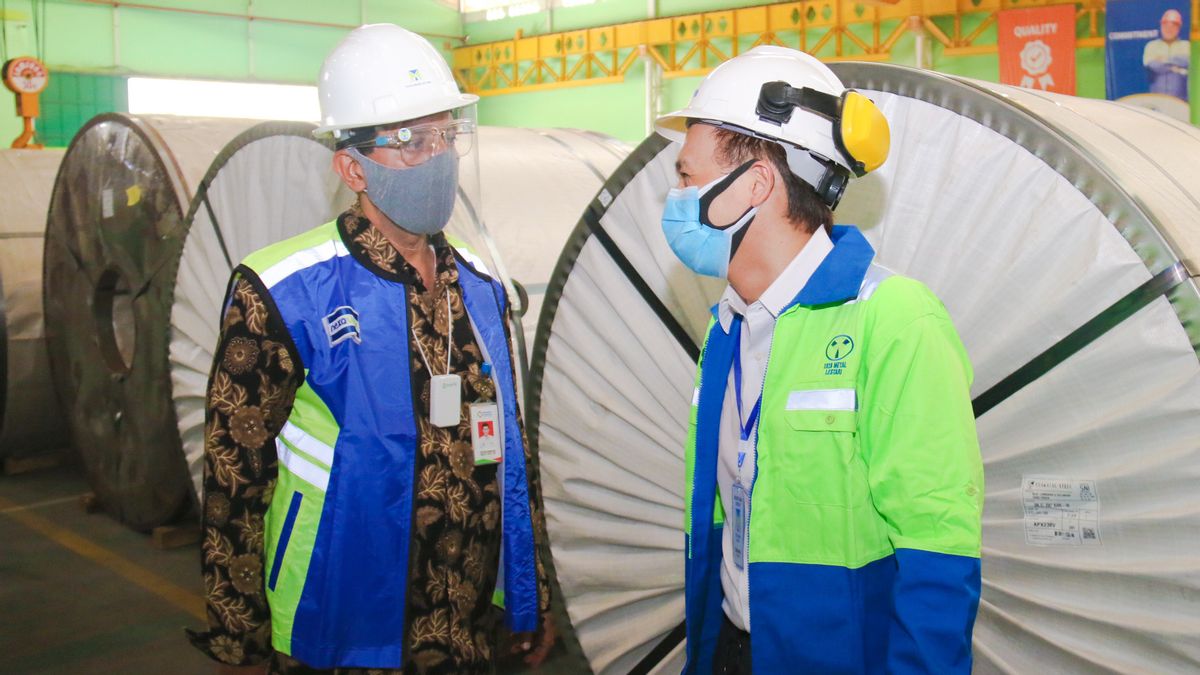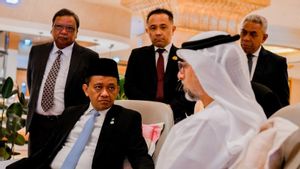JAKARTA - The national steel industry continues to show competitiveness by being able to penetrate the export market. This export activity also proves that the productivity of the domestic steel industry remains vibrant, and indicates that demand or demand in this sector is still growing despite the pressure of the impact of COVID-19.
"We really appreciate PT Tatametal Lestari as one of the national steel producers which in the midst of a pandemic can still export," said Director General of Metal, Machinery, Transportation Equipment and Electronics (ILMATE) Ministry of Industry, Taufiek Bawazier at the release of export of 1,200 tons of steel. to Pakistan, in the industrial area of Cikarang, West Java, Monday 14 September.
The Director General of ILMATE said that the government continues to strive to increase the growth of the national steel industry by encouraging the creation of a conducive and competitive industrial business climate. This is expected to increase utilization and innovative capabilities in the sector.
For this reason, continued Taufiek, the government has issued various regulations, including steel import regulations based on supply-demand, facilitation of natural gas prices for the industrial sector of US $ 6 / MMBtu to reduce production costs, and an Operational Permit for Industrial Mobility and Activities (IOMKI). which guarantees industry to continue operating with the strictest health protocols recommended by the government.
"These policies are formulated with the aim of providing guarantees and opportunities for the national industry, particularly the steel industry, so that they can compete in the domestic and export markets," he said.
He explained, in boosting the performance of the steel industry, the government also continues to strive to increase demand in the domestic market, one of which is by encouraging domestic steel raw materials to support national strategic projects or national construction that are being promoted by the government. In this case the government also cooperates with the Indonesian Chamber of Commerce and Industry (KADIN) and the Association of Indonesian National Construction Implementers (Gapensi).
"The biggest demand for steel products is from construction which absorbs about 51 percent of domestic production, so that the utility of domestic steel factories can be raised," said Taufiek.
Taufiek added that in the second quarter of this year, the base metal industry grew by 2.76 percent, which made a significant contribution to the country's economic growth.
"Industrial growth can increase utility, and it is hoped that it can provide a good multiplier effect for the regions. Here the government and all stakeholders play a role so that the industry can provide high productivity," he explained.
Since the pandemic period took place, from March to April, PT Tata Metal Lestari continued to export regularly to several destination countries. On this occasion, PT Tata Metal exported to new destinations, namely Pakistan and Thailand with an estimated volume of 1,200 tons. The company produces Zinc Aluminum coated steel, among others under the Nexalume brand and TASO mild steel.
Previously, the company exported 100 steel aluminum containers with destinations to several countries, including Australia, Thailand and Latin America last August.
The English, Chinese, Japanese, Arabic, and French versions are automatically generated by the AI. So there may still be inaccuracies in translating, please always see Indonesian as our main language. (system supported by DigitalSiber.id)












